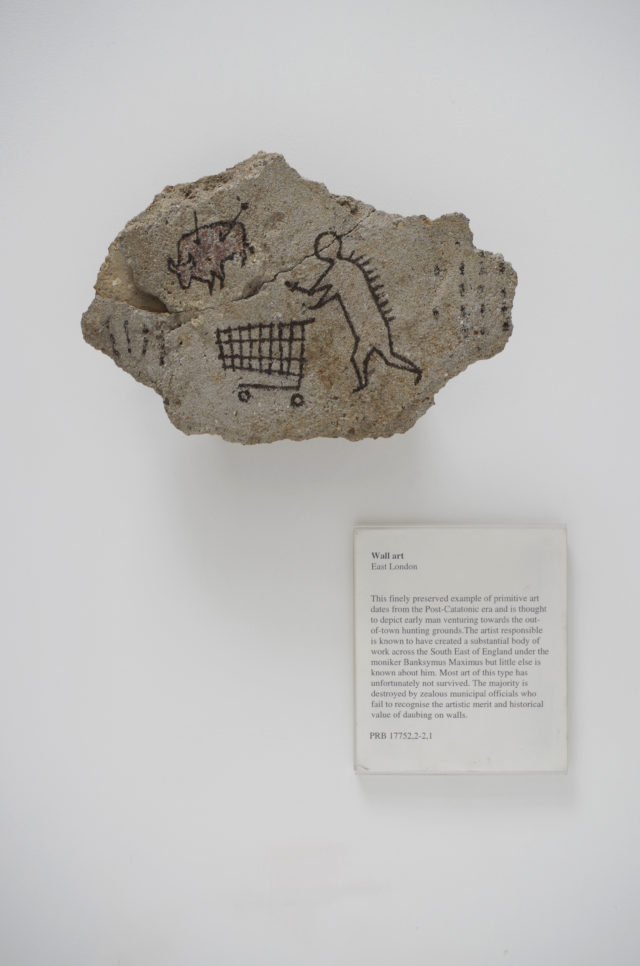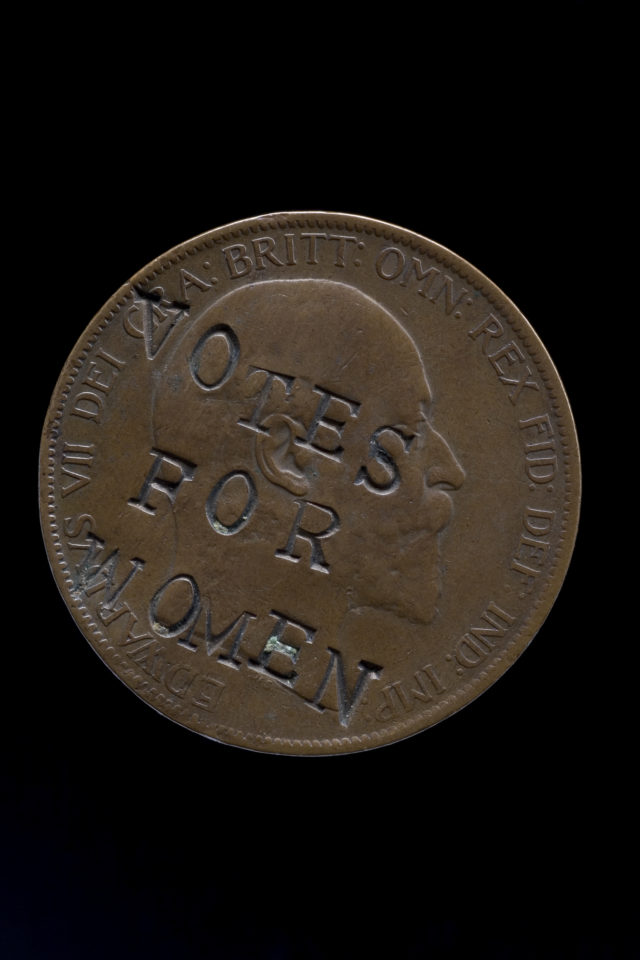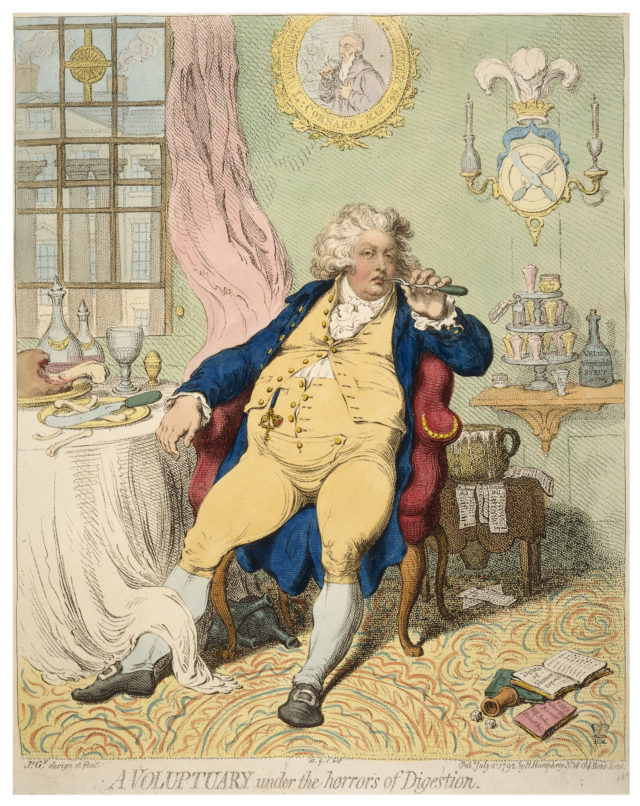Banksy ‘cave painting’ to return to British Museum
It will go back on display – this time with the museum’s permission.

A Banksy “rock painting” is returning to the British Museum more than 10 years after it was planted there as a hoax.
The “cave painting”, of a primitive man pushing a supermarket trolley, was left in one of the museum’s galleries for three days before its staff were alerted.
It will go back on display, this time with the institution’s permission, as part of a new exhibition examining objects which “challenge the official version of events and defy established narratives”.

One of the most well-known items will be a pink knitted “pussyhat”, newly acquired by the museum, which was worn at the Women’s March in Washington in 2017 following Donald Trump’s inauguration as US president.
A Roman oil lamp depicts a woman, thought to be Cleopatra, having sex with a crocodile and is thought to have been made as a propaganda piece against the Egyptian ruler.

Satirical British prints from the 18th century will show George, Prince of Wales, the future King George IV, as an obese and uncouth man who loves banqueting, booze and women.
Other objects, such as an ornate silver-gilt salt cellar made during the English Reformation, concealing Catholic religious imagery, have a concealed meaning.
Private Eye journalist Hislop said of the exhibition, to open in September: “This is a fresh look at the collection that turns up a treasure trove of dissent in the midst of the conformity.

“But from ancient civilisations through to our own, there are extraordinary objects that bear witness to someone questioning the authorised version of their times and deciding to make a small though often lasting protest.”
Banksy’s “rock painting”, entitled Early Man Goes To Market, depicted the outline of a spear-wielding caveman pushing a trolley, next to the outline of a pig.
The work was planted by the anonymous “art terrorist”, whose creation failed to raise eyebrows at one of London’s most famous museums, in 2005.
Museum staff were only alerted after Banksy put a message on his website, saying that the 10in by 6in rock “had remained in the collection for quite some time”.
Museum staff discovered the rock, stuck to a wall with double-sided tape in a gallery of artefacts from Roman Britain.
Banksy had placed it alongside a caption, stating: “This finely preserved example of primitive art dates from the Post-Catatonic era and is thought to depict early man venturing towards the out-of-town hunting grounds.”
He added: “The artist responsible is known to have created a substantial body of work across South East of England under the moniker Banksymus Maximus but little else is known about him.”
The Citi Exhibition, I Object: Ian Hislop’s Search For Dissent runs from September 6 2018 to January 20 2019 at the British Museum.





